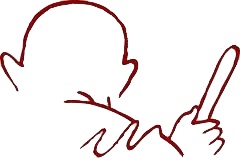Morality
From Wikipedia, the free encyclopedia
|
|
The neutrality of this article is disputed. (May 2013) |
|
|
This article's lead section may not adequately summarize key points of its contents. (June 2012) |
For the 2009 novella by Stephen King, see Morality (novella).
"Appropriate" and "inappropriate" redirect here. For the rating of activities and media according to age groups, see age-appropriate. For other uses, see Appropriation (disambiguation).
"Properly", "properness", "improper", and "impropriety" redirect here. For the improvised performance company, see Impropriety (company). For other uses, see Proper (disambiguation)
"Acceptable" and "unacceptable" redirects here. For other uses, see All pages with titles containing "acceptable" and All pages with titles containing "allowable".
"Immoralist" redirects here. For the novel by André Gide, see The Immoralist.
Not to be confused with Mortality.

Allegory with a portrait of a Venetian senator (Allegory of the morality of earthly things), attributed to Tintoretto, 1585
Contents
Philosophy
Main article: Ethics
|
|
This section needs additional citations for verification. (December 2011) |
Morality and ethics
Ethics (also known as moral philosophy) is that branch of philosophy which addresses questions about morality. The word 'ethics' is "commonly used interchangeably with 'morality' ... and sometimes it is used more narrowly to mean the moral principles of a particular tradition, group, or individual."[5] Likewise, certain types of ethical theories, especially deontological ethics, sometimes distinguish between 'ethics' and 'morals': "Although the morality of people and their ethics amounts to the same thing, there is a usage that restricts morality to systems such as that of Kant, based on notions such as duty, obligation, and principles of conduct, reserving ethics for the more Aristotelian approach to practical reasoning, based on the notion of a virtue, and generally avoiding the separation of 'moral' considerations from other practical considerations."[6] Although the words are often used as synonyms, morals are beliefs based on practices or teachings regarding how people conduct themselves in personal relationships and in society, while ethics refers to a set or system of principles, or a philosophy or theory behind them. When comparing morality with ethics, the word ethics is often used to refer to a philosophical analysis of a particular morality, especially when the formal definition is applied.Descriptive and normative
- In its descriptive sense, "morality" refers to personal or cultural values, codes of conduct or social mores. It does not connote objective claims of right or wrong, but only refers to that which is considered right or wrong. Descriptive ethics is the branch of philosophy which studies morality in this sense.
- In its normative sense, "morality" refers to whatever (if anything) is actually right or wrong, which may be independent of the values or mores held by any particular peoples or cultures. Normative ethics is the branch of philosophy which studies morality in this sense.
Realism and anti-realism
Philosophical theories on the nature and origins of morality (that is, theories of meta-ethics) are broadly divided into two classes:- Moral realism is the class of theories which hold that there are true moral statements that report objective moral facts. For example, while they might concede that forces of social conformity significantly shape individuals' "moral" decisions, they deny that those cultural norms and customs define morally right behavior. This may be the philosophical view propounded by ethical naturalists, however not all moral realists accept that position (e.g. ethical non-naturalists).[7]
- Moral anti-realism, on the other hand, holds that moral statements either fail or do not even attempt to report objective moral facts. Instead, they hold that moral sentences are either categorically false claims of objective moral facts (error theory); claims about subjective attitudes rather than objective facts (ethical subjectivism); or else not attempts to describe the world at all but rather something else, like an expression of an emotion or the issuance of a command (non-cognitivism).
Anthropology
Tribal and territorial
Celia Green made a distinction between tribal and territorial morality.[8] She characterizes the latter as predominantly negative and proscriptive: it defines a person’s territory, including his or her property and dependents, which is not to be damaged or interfered with. Apart from these proscriptions, territorial morality is permissive, allowing the individual whatever behaviour does not interfere with the territory of another. By contrast, tribal morality is prescriptive, imposing the norms of the collective on the individual. These norms will be arbitrary, culturally dependent and ‘flexible’, whereas territorial morality aims at rules which are universal and absolute, such as Kant’s ‘categorical imperative’ and Geisler's graded absolutism. Green relates the development of territorial morality to the rise of the concept of private property, and the ascendancy of contract over status.In-group and out-group
Main article: Ingroups and outgroups
Some observers hold that individuals apply distinct sets of moral rules to people depending on their membership of an "in-group"
(the individual and those they believe to be of the same culture or
race) or an "out-group" (people not entitled to be treated according to
the same rules). Some biologists, anthropologists and evolutionary psychologists
believe this in-group/out-group discrimination has evolved because it
enhances group survival. This belief has been confirmed by simple
computational models of evolution.[9]
In simulations this discrimination can result in both unexpected
cooperation towards the in-group and irrational hostility towards the
out-group.[10] Gary R. Johnson and V.S. Falger have argued that nationalism and patriotism are forms of this in-group/out-group boundary. Jonathan Haidt has noted[11] that experimental observation indicating an in-group criterion provides one moral foundation substantially used by conservatives, but far less so by liberals.Comparing cultures
| This section requires expansion. (August 2011) |
Fons Trompenaars, author of Did the Pedestrian Die?, tested members of different cultures with various moral dilemmas. One of these was whether the driver of a car would have his friend, a passenger riding in the car, lie in order to protect the driver from the consequences of driving too fast and hitting a pedestrian. Trompenaars found that different cultures had quite different expectations (from none to almost certain).[citation needed]
John Newton, author of Complete Conduct Principles for the 21st Century [13] compared the Eastern and the Western cultures about morality. As stated in Complete Conduct Principles for the 21st Century, “One of the important objectives of this book is to blend harmoniously the fine souls regarding conduct in the Eastern and the Western cultures, to take the result as the source and then to create newer and better conduct principles to suit the human society of the new century, and to introduce a lot of Chinese fine conduct spirits to the Western world. It is hoped that this helps solve lots of problems the human society of the 21st century faces, including (but not limited to the Eastern and the Western cultures) what a single culture cannot.”
Evolution
- See also: Altruism, Evolution of morality, Evolutionary ethics
On this understanding, moralities are sets of self-perpetuating and ideologically-driven behaviors which encourage human cooperation. Biologists contend that all social animals, from ants to elephants, have modified their behaviors, by restraining immediate selfishness in order to improve their evolutionary fitness. Human morality, though sophisticated and complex relative to other animals, is essentially a natural phenomenon that evolved to restrict excessive individualism that could undermine a group's cohesion and thereby reducing the individuals' fitness.[15] On this view, moral codes are ultimately founded on emotional instincts and intuitions that were selected for in the past because they aided survival and reproduction (inclusive fitness). Examples: the maternal bond is selected for because it improves the survival of offspring; the Westermarck effect, where close proximity during early years reduces mutual sexual attraction, underpins taboos against incest because it decreases the likelihood of genetically risky behaviour such as inbreeding.
The phenomenon of 'reciprocity' in nature is seen by evolutionary biologists as one way to begin to understand human morality. Its function is typically to ensure a reliable supply of essential resources, especially for animals living in a habitat where food quantity or quality fluctuates unpredictably. For example, some vampire bats fail to feed on prey some nights while others manage to consume a surplus. Bats that did eat will then regurgitate part of their blood meal to save a conspecific from starvation. Since these animals live in close-knit groups over many years, an individual can count on other group members to return the favor on nights when it goes hungry (Wilkinson, 1984) Marc Bekoff and Jessica Pierce (2009) have argued that morality is a suite of behavioral capacities likely shared by all mammals living in complex social groups (e.g., wolves, coyotes, elephants, dolphins, rats, chimpanzees). They define morality as "a suite of interrelated other-regarding behaviors that cultivate and regulate complex interactions within social groups." This suite of behaviors includes empathy, reciprocity, altruism, cooperation, and a sense of fairness.[16] In related work, it has been convincingly demonstrated that chimpanzees show empathy for each other in a wide variety of contexts.[17] They also possess the ability to engage in deception, and a level of social 'politics'[18] prototypical of our own tendencies for gossip and reputation management.
Christopher Boehm (1982)[19] has hypothesized that the incremental development of moral complexity throughout hominid evolution was due to the increasing need to avoid disputes and injuries in moving to open savanna and developing stone weapons. Other theories are that increasing complexity was simply a correlate of increasing group size and brain size, and in particular the development of theory of mind abilities. Richard Dawkins in The God Delusion suggested that our morality is a result of our biological evolutionary history and that the Moral Zeitgeist helps describe how morality evolves from biological and cultural origins and evolves with time within a culture.
A British poll found that the most important moral points among young people were looking after ones family and putting others before yourself.[20]
Neuroscience
The brain areas that are consistently involved when humans reason about moral issues have been investigated by a quantitative large-scale meta-analysis of the brain activity changes reported in the moral neuroscience literature.[21] In fact, the neural network underlying moral decisions overlapped with the network pertaining to representing others' intentions (i.e., theory of mind) and the network pertaining to representing others' (vicariously experienced) emotional states (i.e., empathy). This supports the notion that moral reasoning is related to both seeing things from other persons’ points of view and to grasping others’ feelings. These results provide evidence that the neural network underlying moral decisions is probably domain-global (i.e., there might be no such things as a "moral module" in the human brain) and might be dissociable into cognitive and affective sub-systems.[21]Brain areas
The explicit making of moral right and wrong judgments coincides with activation in the ventromedial prefrontal cortex (VMPC) while intuitive reactions to situations containing implicit moral issues activates the temporoparietal junction area.[22] Stimulation of the VMPC by transcranial magnetic stimulation has been shown to inhibit the ability of human subjects to take into account intent when forming a moral judgment.[23] Similarly VMPC-impaired persons will judge an action purely on its outcome and are unable to take into account the intent of that action.[24]Mirror neurons
Main article: Mirror neurons
Mirror neurons are neurons in the brain that fire when another person
is observed doing a certain action. The neurons fire in imitation of
the action being observed, causing the same muscles to act minutely in
the observer as are acting grossly in the person actually performing the
action. Research on mirror neurons, since their discovery in 1996,[25] suggests that they may have a role to play not only in action understanding, but also in emotion sharing empathy. Cognitive neuro-scientist Jean Decety
thinks that the ability to recognize and vicariously experience what
another individual is undergoing was a key step forward in the evolution
of social behavior, and ultimately, morality.[26] The inability to feel empathy is one of the defining characteristics of psychopathy, and this would appear to lend support to Decety's view.[27][28]Psychology
See also: Kohlberg's stages of moral development and Jean Piaget#Education and development of morality

Kohlberg Model of Moral Development
Even though we have a sense of responsibility to pursue moral purposes,[according to whom?] we still, at least occasionally, engage in immoral behaviour. Such behaviours jeopardize our moral self-image; however, when we engage in immoral behaviours we still feel as though we are moral individuals. Moral self-licensing attempts to explain this phenomenon and proposes that self-image security increases our likelihood to engage in immoral behaviour. When our moral self-image is threatened, we can gain confidence from our past moral behaviour. The more confident we are, the less we will worry about our future behaviour which actually increases the likelihood that we will engage in immoral behaviours.[29][30]
Monin and Miller (2001)[29] examined the moral self-licensing effect and found that when participants established credentials as non-prejudiced persons, they were more willing to express politically incorrect opinions despite the fact that the audience was unaware of their credentials.
Morality and politics
If morality is the answer to the question 'how ought we to live' at the individual level, politics can be seen as addressing the same question at the social level, though the political sphere raises additional problems and challenges.[31] It is therefore unsurprising that evidence has been found of a relationship between attitudes in morality and politics. Jonathan Haidt and Jesse Graham have studied the differences between liberals and conservatives, in this regard.[32][33][34] Haidt found that Americans who identified as liberals tended to value care and fairness higher than loyalty, respect and purity. Self-identified conservative Americans valued care and fairness less and the remaining three values more. Both groups gave care the highest over-all weighting, but conservatives valued fairness the lowest, whereas liberals valued purity the lowest. Haidt also hypothesizes that the origin of this division in the United States can be traced to geohistorical factors, with conservatism strongest in closely knit, ethnically homogenous communities, in contrast to port-cities, where the cultural mix is greater, thus requiring more liberalism.Group morality develops from shared concepts and beliefs and is often codified to regulate behavior within a culture or community. Various defined actions come to be called moral or immoral. Individuals who choose moral action are popularly held to possess "moral fiber", whereas those who indulge in immoral behavior may be labeled as socially degenerate[disambiguation needed]. The continued existence of a group may depend on widespread conformity to codes of morality; an inability to adjust moral codes in response to new challenges is sometimes credited with the demise of a community (a positive example would be the function of Cistercian reform in reviving monasticism; a negative example would be the role of the Dowager Empress in the subjugation of China to European interests). Within nationalist movements, there has been some tendency to feel that a nation will not survive or prosper without acknowledging one common morality, regardless of its content. Political Morality is also relevant to the behaviour internationally of national governments, and to the support they receive from their host population. Noam Chomsky states that [35][36]
| “ | ... if we adopt the principle of universality : if an action is right (or wrong) for others, it is right (or wrong) for us. Those who do not rise to the minimal moral level of applying to themselves the standards they apply to others more stringent ones, in fact—plainly cannot be taken seriously when they speak of appropriateness of response; or of right and wrong, good and evil. | ” |
| “ | In fact, one of the, maybe the most, elementary of moral principles is that of universality, that is, If something's right for me, it's right for you; if it's wrong for you, it's wrong for me. Any moral code that is even worth looking at has that at its core somehow. | ” |
Morality and religion
Main article: Morality and religion
Positions
Within the wide range of moral traditions, religious moral traditions co-exist with contemporary secular moral frameworks such as consequentialism, freethought, humanism, utilitarianism, and others. There are many types of religious morals. Modern monotheistic religions, such as Islam, Judaism, Christianity, and to a certain degree others such as Sikhism and Zoroastrianism, define right and wrong by the laws and rules set forth by their respective scriptures and as interpreted by religious leaders within the respective faith. Polytheistic religious traditions tend to be less absolute. For example, within Buddhism, the intention of the individual and the circumstances should be accounted for to determine if an action is right or wrong.[37] A further disparity between the morals of religious traditions is pointed out by Barbara Stoler Miller, who states that, in Hinduism, "practically, right and wrong are decided according to the categories of social rank, kinship, and stages of life. For modern Westerners, who have been raised on ideals of universality and egalitarianism, this relativity of values and obligations is the aspect of Hinduism most difficult to understand".[38]Religions provide different ways of dealing with moral dilemmas. For example, there is no absolute prohibition on killing in Hinduism, which recognizes that it "may be inevitable and indeed necessary" in certain circumstances.[39] In monotheistic traditions, certain acts are viewed in more absolute terms, such as abortion or divorce.[a] Religion is not always positively associated with morality. Philosopher David Hume stated that, "the greatest crimes have been found, in many instances, to be compatible with a superstitious piety and devotion; Hence it is justly regarded as unsafe to draw any inference in favor of a man's morals, from the fervor or strictness of his religious exercises, even though he himself believe them sincere."[40]
Religious morals can diverge from commonly-held contemporary moral positions, such as those on murder, mass atrocities, and slavery. For example, Simon Blackburn states that "apologists for Hinduism defend or explain away its involvement with the caste system, and apologists for Islam defend or explain away its harsh penal code or its attitude to women and infidels".[41] In regard to Christianity, he states that the "Bible can be read as giving us a carte blanche for harsh attitudes to children, the mentally handicapped, animals, the environment, the divorced, unbelievers, people with various sexual habits, and elderly women",[42] and notes morally suspect themes in the Bible's New Testament as well.[43][e] Christian apologists address Blackburn's viewpoints[44] and explain that Jewish laws in the bible show the evolution of moral standards towards protecting the vulnerable, imposing a death penalty on those pursuing slavery and treating slaves as persons and not property.[45] Elizabeth Anderson, a Professor of Philosophy and Women's Studies at the University of Michigan, Ann Arbor, states that "the Bible contains both good and evil teachings", and it is "morally inconsistent".[46] Humanists like Paul Kurtz believe that we can identify moral values across cultures, even if we do not appeal to a supernatural or universalist understanding of principles - values including integrity, trustworthiness, benevolence, and fairness. These values can be resources for finding common ground between believers and nonbelievers.[47]
Empirical analyses
A number of studies have been conducted on the empirics of morality in various countries, and the overall relationship between faith and crime is unclear.[b] A 2001 review of studies on this topic found "The existing evidence surrounding the effect of religion on crime is varied, contested, and inconclusive, and currently no persuasive answer exists as to the empirical relationship between religion and crime."[48] Phil Zuckerman's 2008 book, Society without God, notes that Denmark and Sweden, "which are probably the least religious countries in the world, and possibly in the history of the world", enjoy "among the lowest violent crime rates in the world [and] the lowest levels of corruption in the world".[49][c]Dozens of studies have been conducted on this topic since the twentieth century. A 2005 study by Gregory S. Paul published in the Journal of Religion and Society stated that, "In general, higher rates of belief in and worship of a creator correlate with higher rates of homicide, juvenile and early adult mortality, STD infection rates, teen pregnancy, and abortion in the prosperous democracies," and "In all secular developing democracies a centuries long-term trend has seen homicide rates drop to historical lows" with the exceptions being the United States (with a high religiosity level) and "theistic" Portugal.[50][d] In a response, Gary Jensen builds on and refines Paul's study.[51] His conclusion is that a "complex relationship" exists between religiosity and homicide "with some dimensions of religiosity encouraging homicide and other dimensions discouraging it". On April 26, 2012, the results of a study which tested their subjects' pro-social sentiments were published in the Social Psychological and Personality Science journal in which non-religious people had higher scores showing that they were more inclined to show generosity in random acts of kindness, such as lending their possessions and offering a seat on a crowded bus or train. Religious people also had lower scores when it came to seeing how much compassion motivated participants to be charitable in other ways, such as in giving money or food to a homeless person and to non-believers.[52][53]
Moral codes
|
|
This article needs additional citations for verification. (December 2011) |
Morality can also be seen as the collection of beliefs as to what constitutes a good life. Since throughout most of human history, religions have provided both visions and regulations for an ideal life, morality is often confused with religious precepts. In secular communities, lifestyle choices, which represent an individual's conception of the good life, are often discussed in terms of morality. Individuals sometimes feel that making an appropriate lifestyle choice invokes a true morality, and that accepted codes of conduct within their chosen community are fundamentally moral, even when such codes deviate from more general social principles.[citation needed]
Moral codes are often complex definitions of moral and immoral that are based upon well-defined value systems. Although some people might think that a moral code is simple, rarely is there anything simple about one's values, ethics, etc. or, for that matter, the judgment of those of others. The difficulty lies in the fact that morals are often part of a religion and more often than not about culture codes. Sometimes, moral codes give way to legal codes, which couple penalties or corrective actions with particular practices. Note that while many legal codes are merely built on a foundation of religious and/or cultural moral codes, often they are one and the same.[citation needed]
Examples of moral codes include The Golden Rule (or "ethic of reciprocity");[54] the Five Precepts and the Noble Eightfold Path of Buddhism (see Śīla); the ancient Egyptian code of Ma'at; the Ten Commandments of Judaism and Christianity; the Quran of Islam; Judaism's Noahide Law; and the yamas and niyama of the Hindu scriptures.
Another related concept is the moral core of an individual, which is assumed to be innate. This, in some religious systems and beliefs (e.g. Gnosticism), is assumed to be the basis of all aesthetics and thus moral choice. Moral codes as such are therefore seen as coercive—part of human politics.[citation needed]
Saturn My Brother’s Keeper? Compassion Predicts Generosity More









